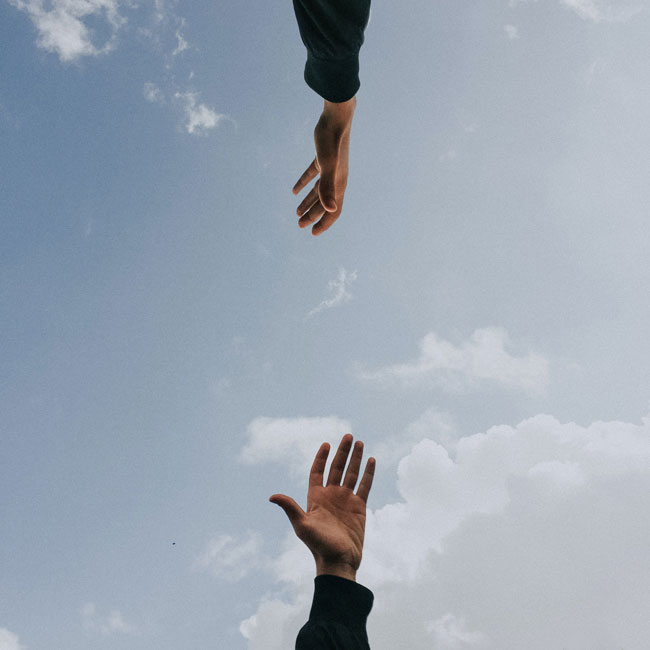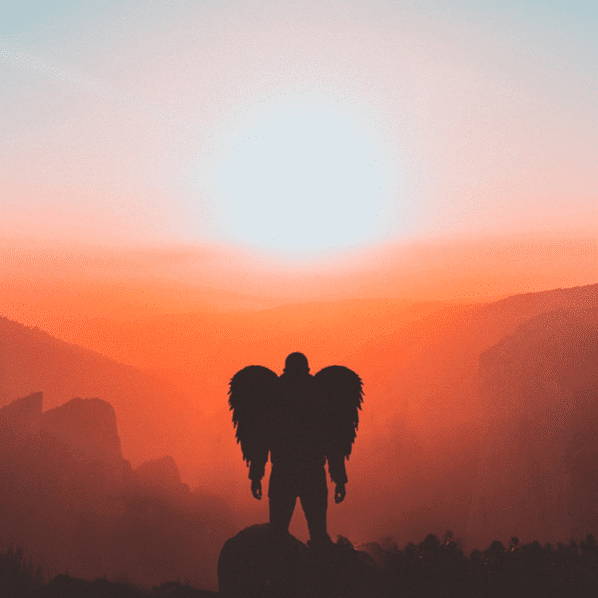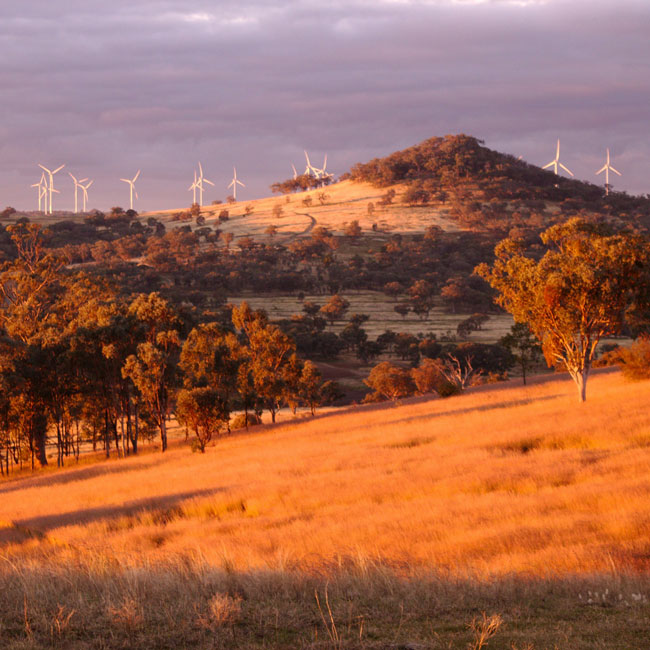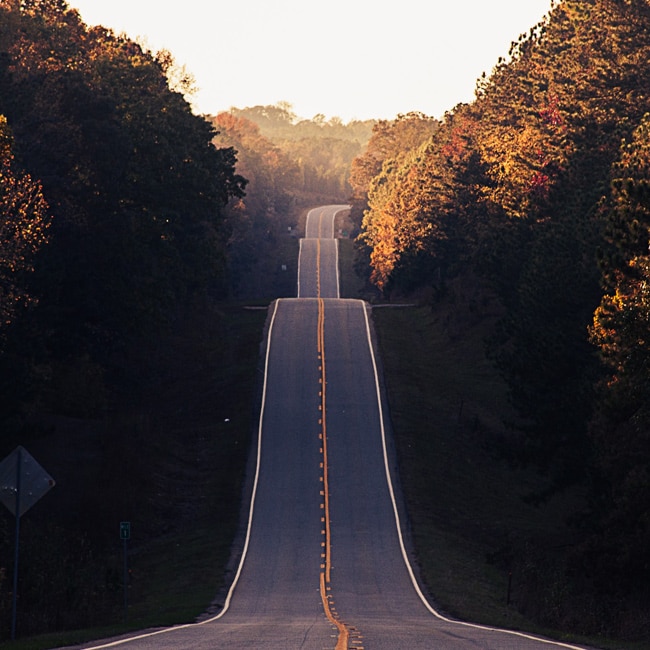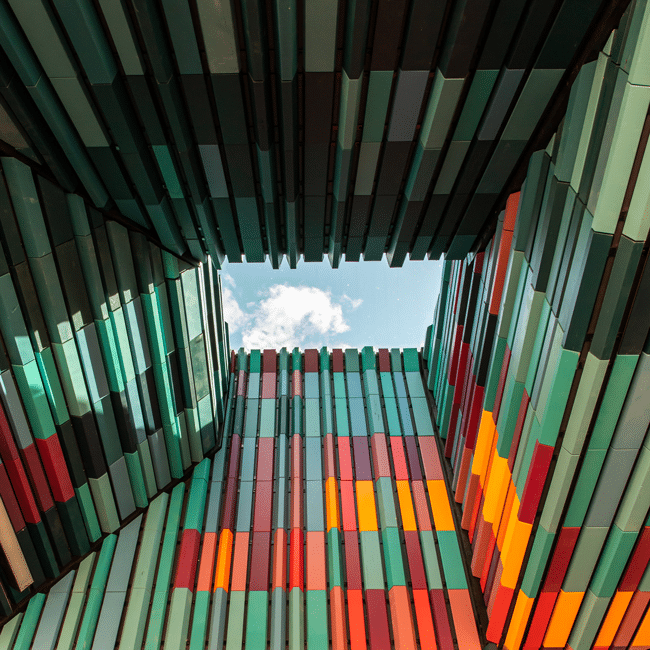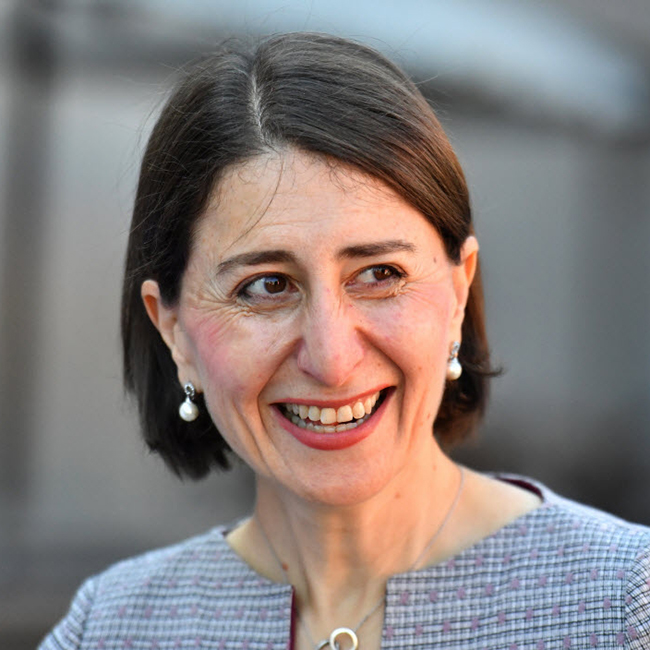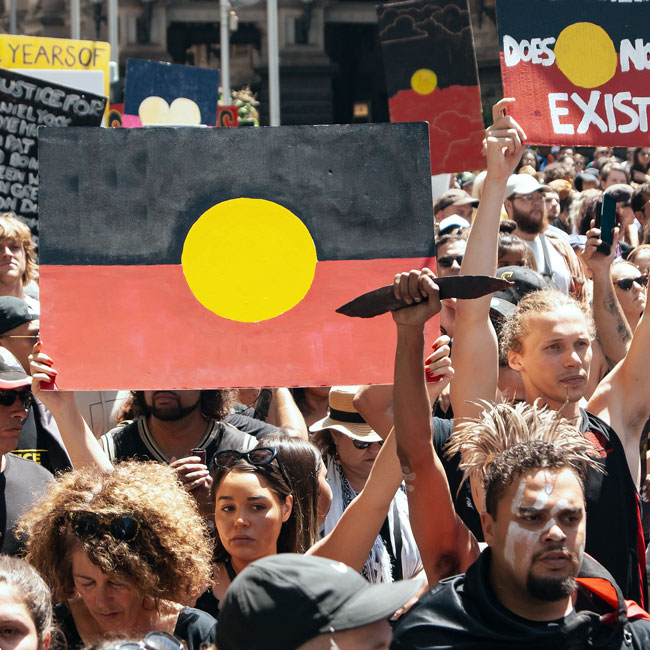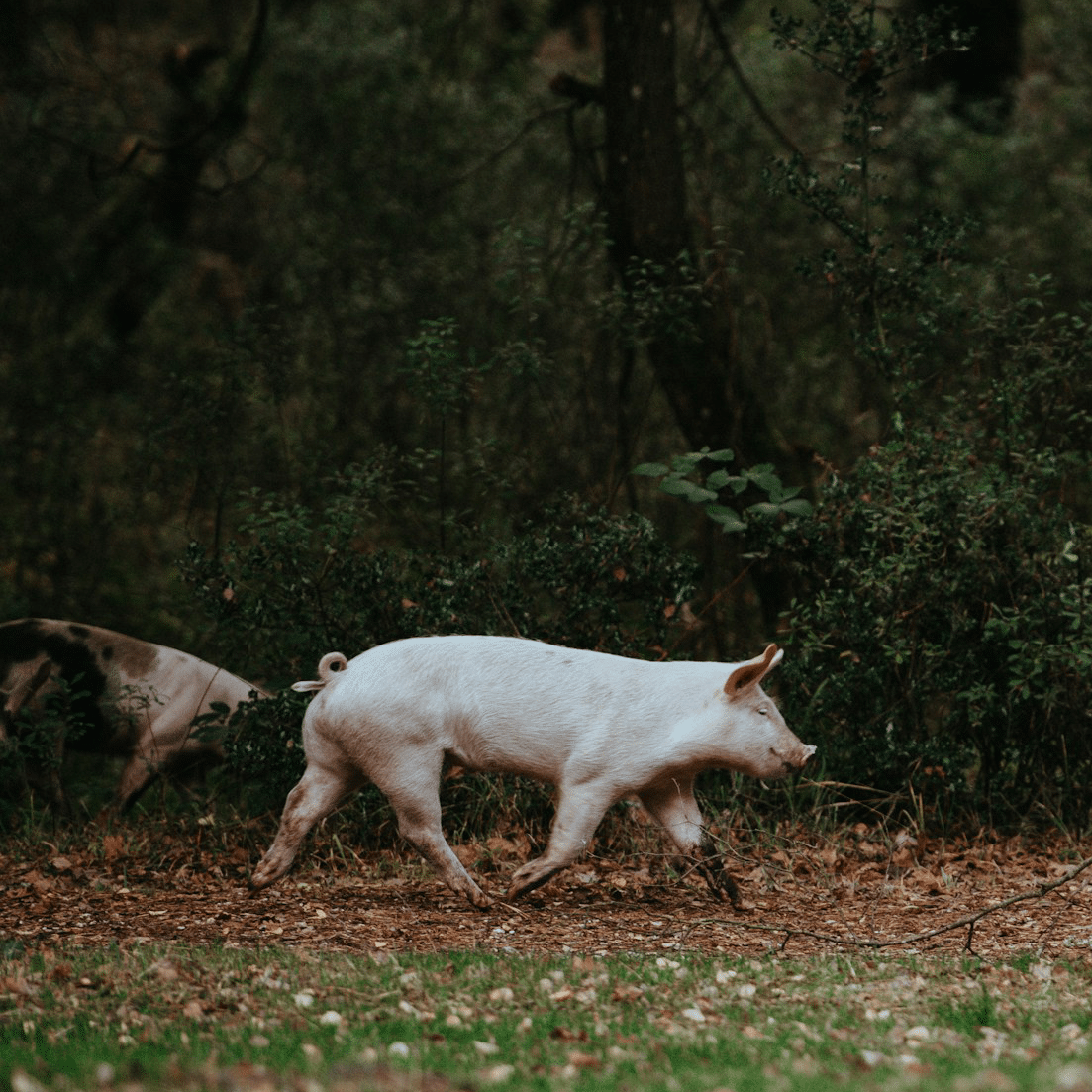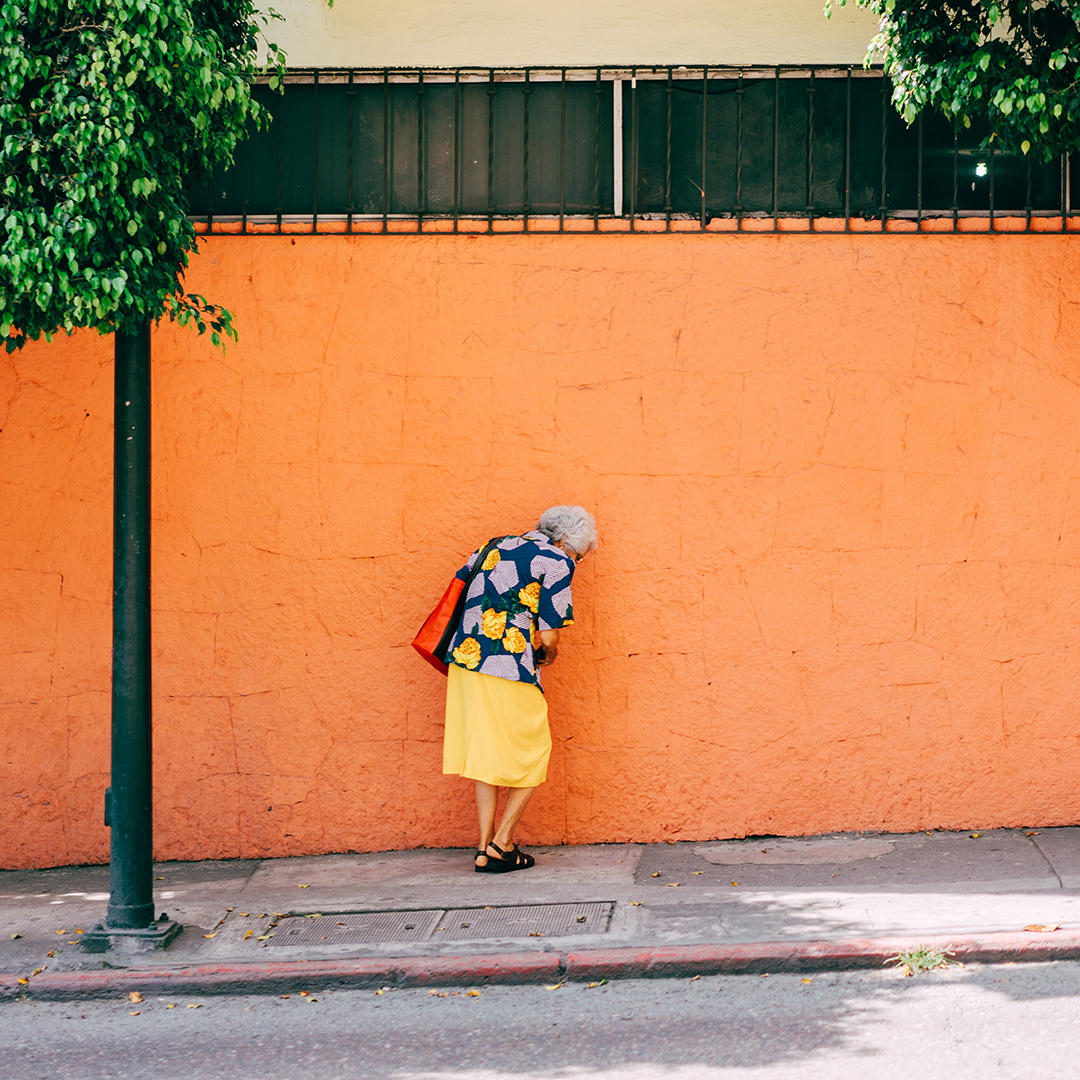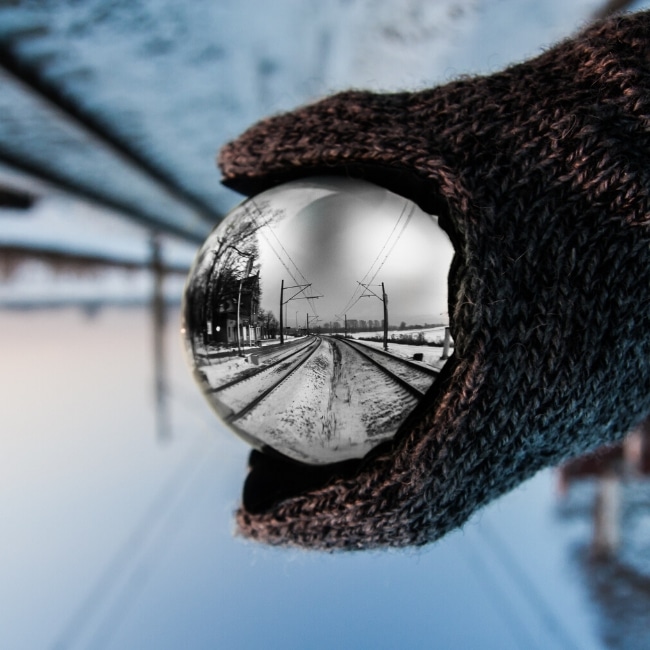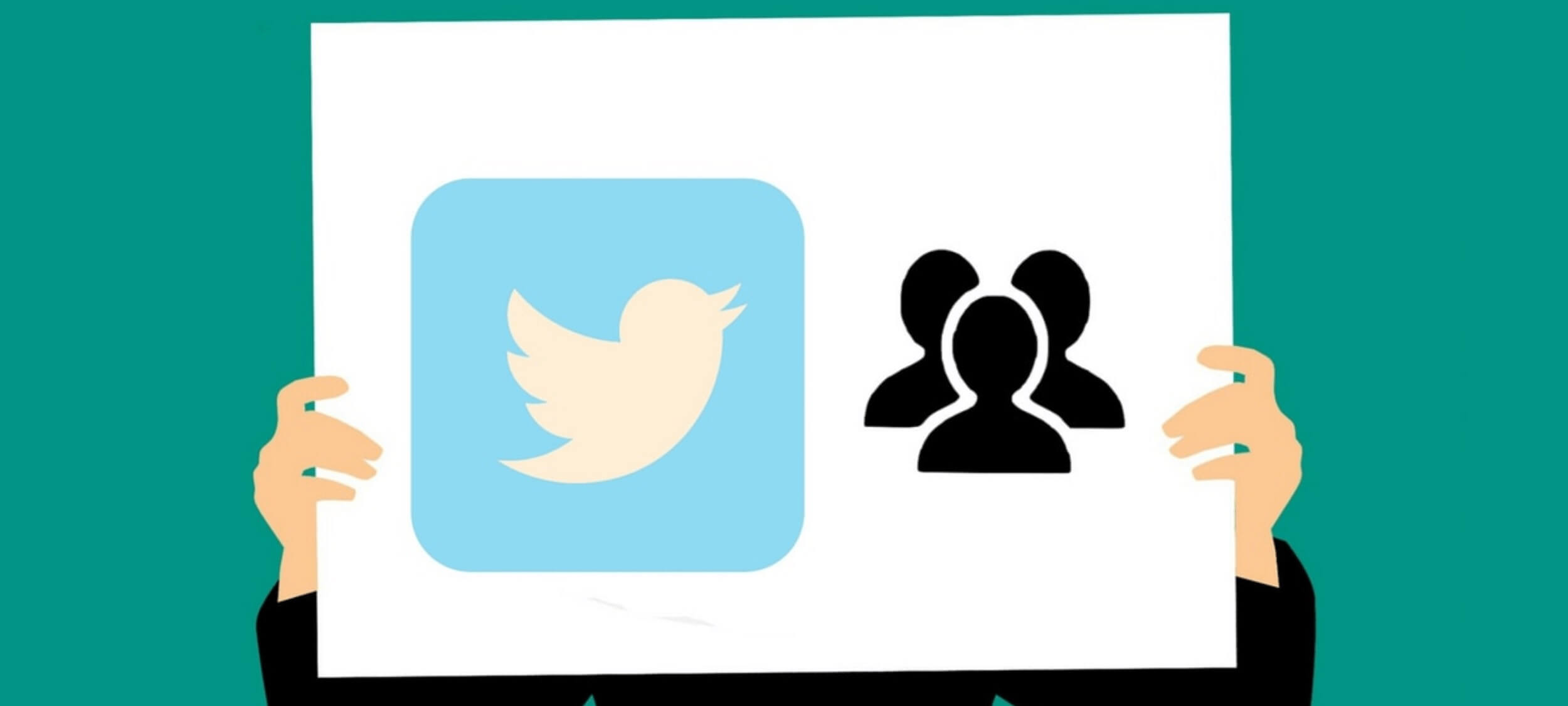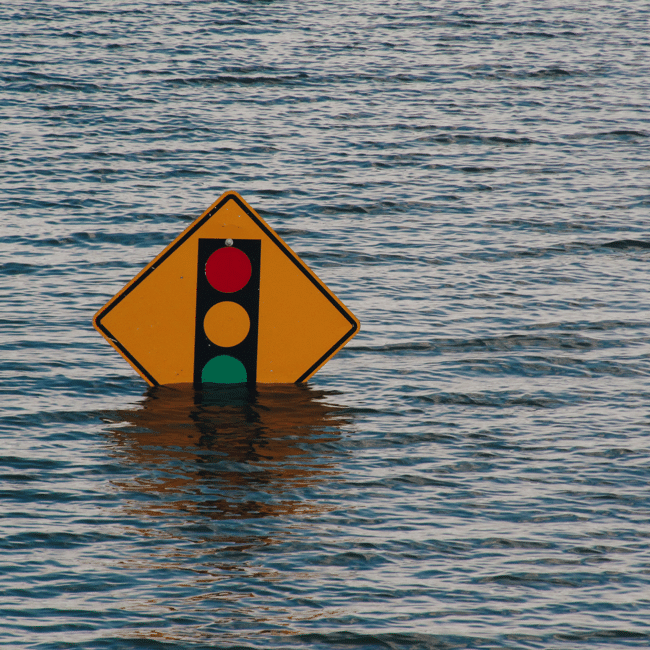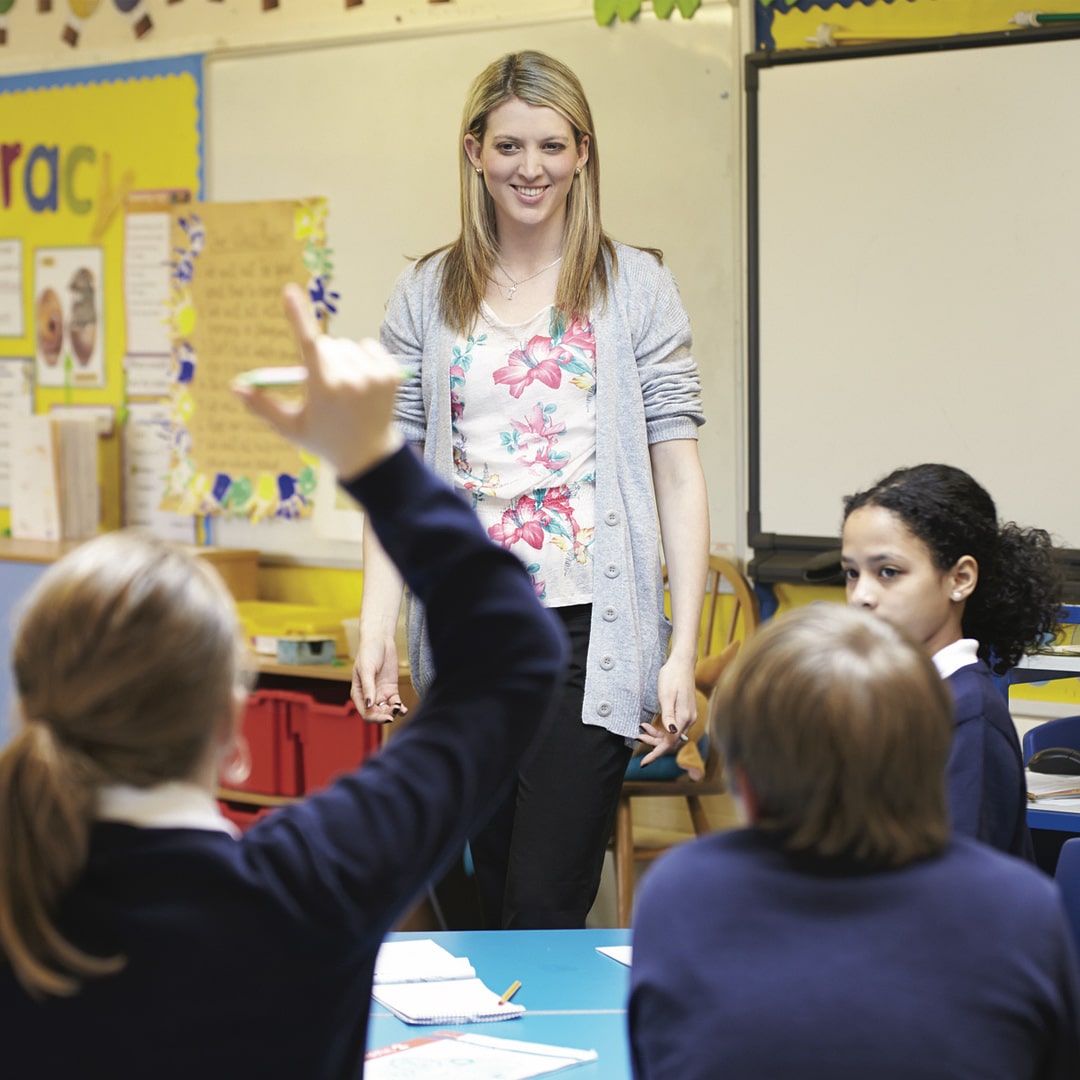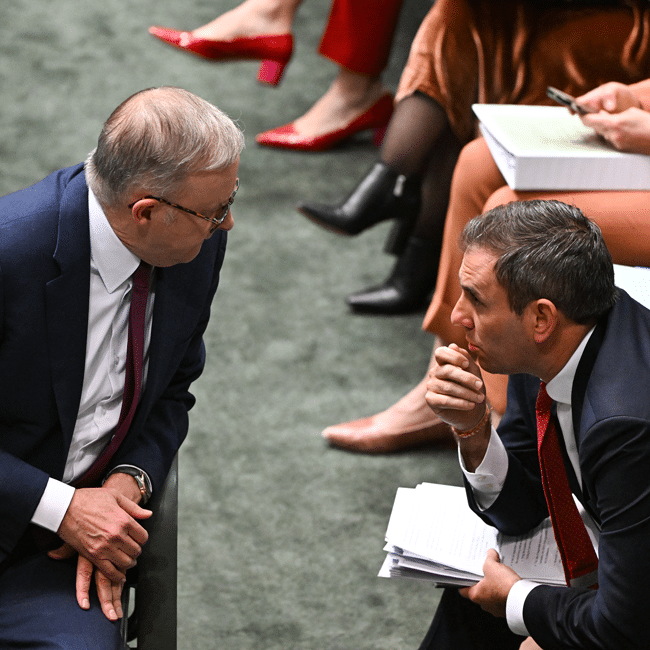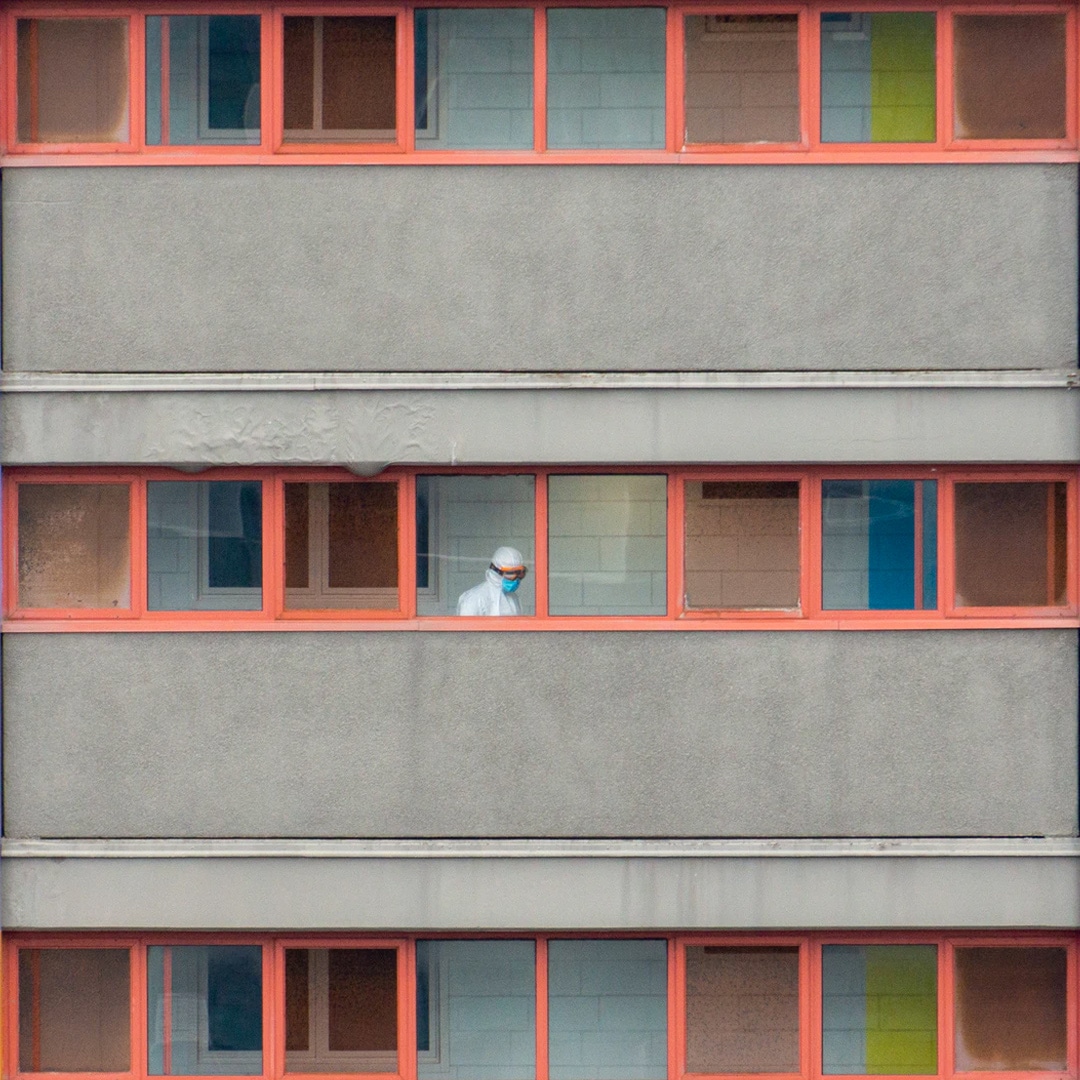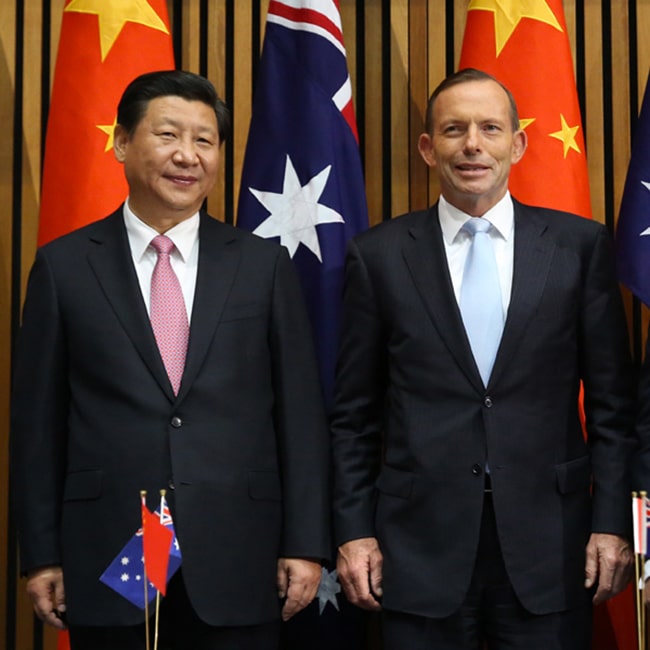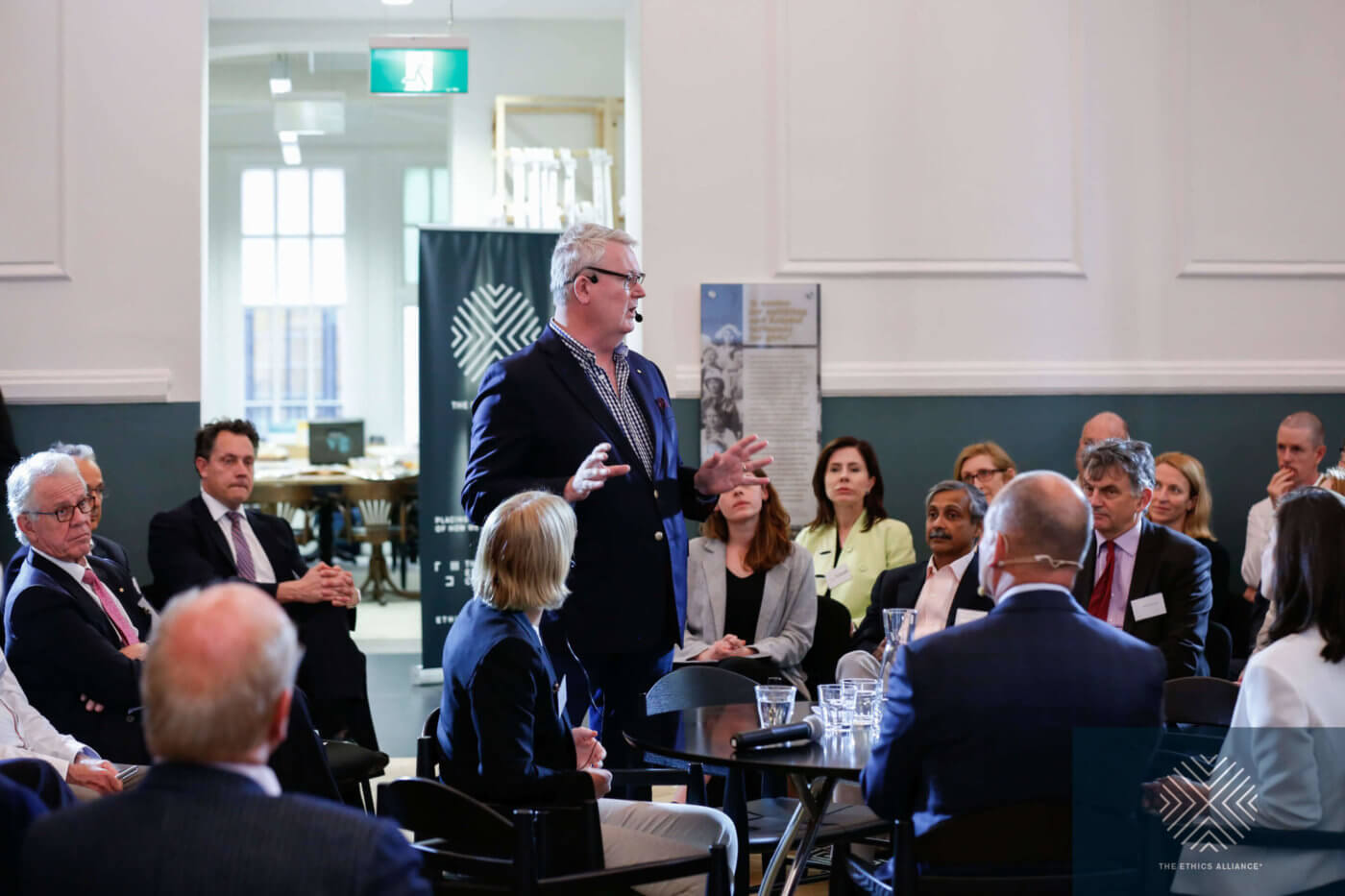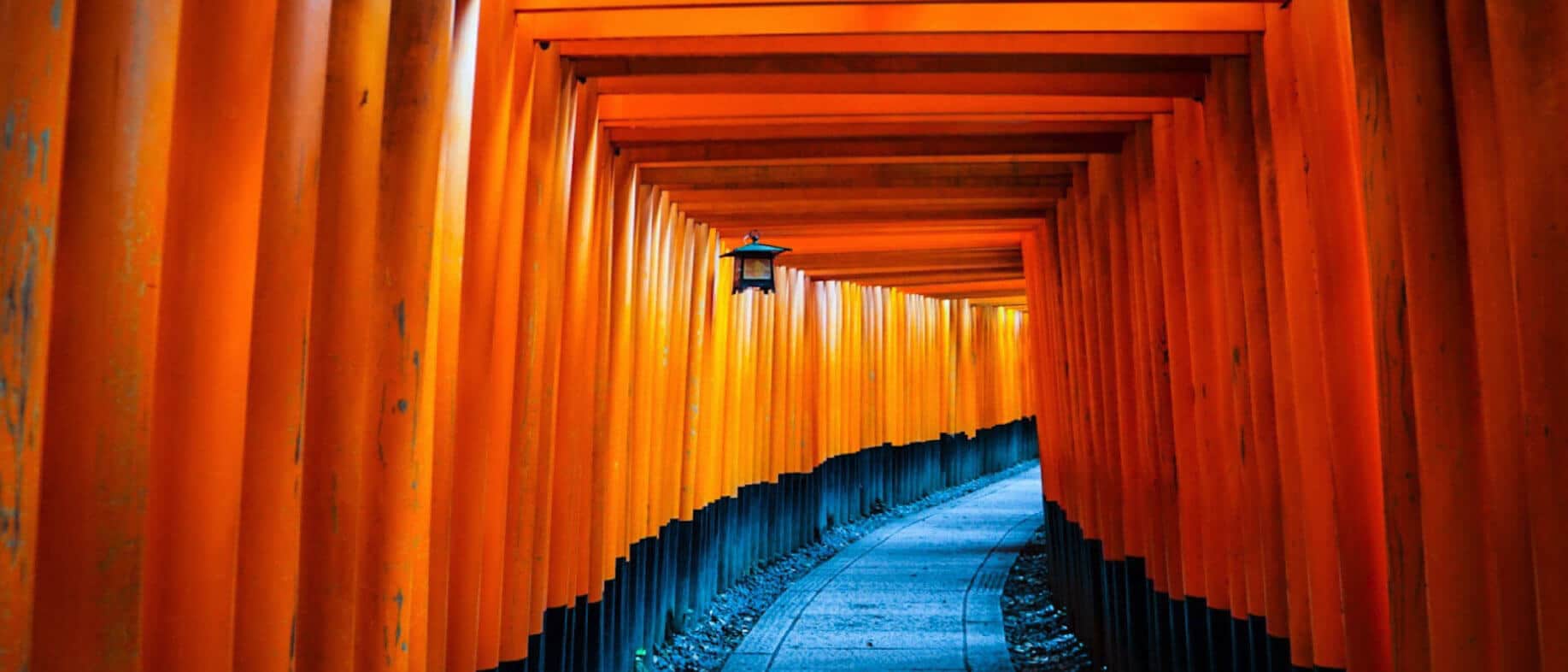Our economy needs Australians to trust more. How should we do it?
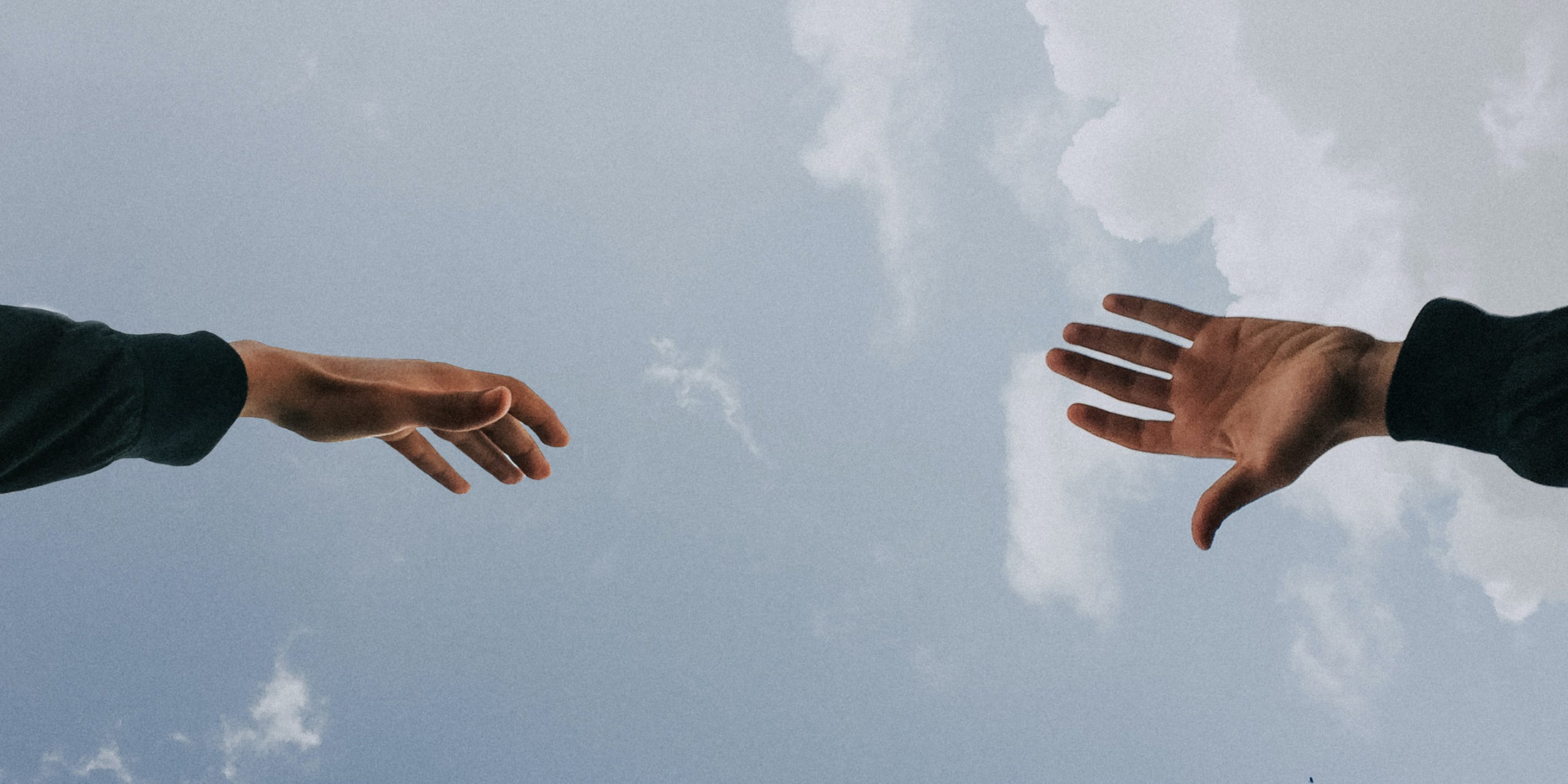
Our economy needs Australians to trust more. How should we do it?
Opinion + AnalysisBusiness + Leadership
BY Matthew Beard 29 OCT 2020
Imagine for a moment that your neighbour is a sweet, polite elderly man.
His partner has died and he lives alone. He has no family to speak of, and one day, his lifelong habit of purchasing lottery tickets pays off. He wins $50 million.
Suddenly, your brain starts ticking over. Statistically speaking, your neighbour doesn’t have too many years left. And when he dies, he’s likely to leave behind an enormous inheritance. What if you were the person he trusted to bequeath some of his wealth to? What would you do to earn his trust with so much on the line? Would you lie? Manipulate?
It’s important for us to ponder this, because new research from The Ethics Centre suggests Australia finds itself in a similar situation. According to figures produced by Deloitte Access Economics, if Australia was able to elevate its national trust score from 54% – its current level – to 65%, it would unlock $45 billion in GDP.
With so much on the line, it would be understandable to see political leaders and businesses looking for the fastest, most effective way to build trust. We assume more trust is better than less trust. However, that’s an assumption we need to be cautious of. “I have an issue with the connection of trust with growth,’ says Rachel Botsman, Trust Fellow at Oxford University’s Said Business School and author of Who Can You Trust?
“Trust,” Botsman explains, “is not always the goal. It’s intelligently placed trust.”
Consider this from the perspective of the elderly man in our imaginary story. For him, growing more trusting of his neighbour is only a good thing if his neighbour deserves to be trusted. If he trusts a dishonest neighbour who just wants his inheritance, that growth in trust isn’t something to celebrate. In fact, this increased trust is dangerous to him.
When we take the thought experience and apply it to Australia’s economy, the point still stands. As individuals, we don’t want to be more trusting of governments, organisations or markets unless they deserve our trust. Even if higher trust levels are good for GDP, it’s only good for us if it’s earned in the right way – ethically.
“Trust is the social glue of society,” says Botsman. “To manipulate that – because it can so easily be manipulated and tracked in terms of growth – feels wrong.”
Botsman has spent years speaking to businesses and governments about trust and encouraging them to value it. Today, she’s worried lots of her audience have missed her message.
She says, “I start this conversation about trust in organisations, and then a year later it’s become a commercial strategy. They’re trying to assess the return on investment, and, it’s like ‘no, that’s not that’s not I meant! When I meant ‘value’ I didn’t mean economic growth.”
Botsman worries about the effects of framing discussions around trust in the language of business and capitalism. Trustworthy decisions “might result in some kind of short-term financial loss, so it’s problematic that loss is caught up in the language of finance and money.”
Katherine Hawley, Professor of Philosophy at the University of St Andrews, and author of How to Be Trustworthy, defines trustworthy people as those who avoid unfulfilled commitments and broken promises. Basically, Hawley sees trustworthiness as the absence of untrustworthiness. Untrustworthy people make promises they can’t keep and fail to meet their obligations. If you don’t do these things, you’re probably a trustworthy person.
However, Hawley is quick to add that being trustworthy doesn’t necessarily guarantee that people will actually trust you. “There can be a significant gap between whether you are trustworthy and whether people can see you to be trustworthy,” she says.
Botsman agrees, “one of the hardest things to get your head around with trust is that even if you behave in a way that you think is the most trustworthy, you are still not in control of whether that person gives you their trust.”
This is one reason why Botsman has begun to advise organisations to stop thinking about building trust, and start thinking about acting with integrity, “because the language of intentions, motives, honesty and whether they best serve the interests of customers is much harder for companies to hide behind than questions of trust.”
A focus on integrity also helps prevent us from seeking trust in an undifferentiated way – not caring whether it’s intelligent trust or not. It shifts our focus away from what other people are thinking and toward our own activities.
“You would hope that people would want to be ethical, not just seem to be ethical,” says Hawley. However, in case that principle doesn’t persuade some people, Hawley offers a word of caution. She describes a phenomenon called ‘betrayal aversion’, “People get more angry in situations in which they first trusted and then found out that was a mistake than when they just didn’t trust in the first place.”
This idea, which comes from the work of behavioural economist Cass Sunstein, is a sober warning to those who see trust as a tool – something to be collected because it’s useful for growth, profit or advantage. “The risk for these businesses is that if people come to find out this was going on, or even find out that was their motive, then that could be worse for them.”
There is a strong moral argument – especially during a recession – for pursuing economic growth. For some, the importance of growth is likely to be enough to justify pursuing trust by any means possible. However, Hawley gives us a good reason to pause.
Chasing trust in the wrong way is something untrustworthy people do. And that makes the trust you accrue a bad investment – it’s fragile. The slower, more carefully accumulated relational trust might not offer the same returns in the short term, but it’s based on something more stable: ethics.
Ethics in your inbox.
Get the latest inspiration, intelligence, events & more.
By signing up you agree to our privacy policy
You might be interested in…
Opinion + Analysis
Business + Leadership
Why do good people do bad things?
Opinion + Analysis
Business + Leadership, Relationships
Workplace romances, dead or just hidden from view?
Opinion + Analysis
Business + Leadership, Relationships
Facing tough decisions around redundancies? Here are some things to consider
Opinion + Analysis
Climate + Environment, Business + Leadership
We’re in this together: The ethics of cooperation in climate action and rural industry
BY Matthew Beard
Matt is a moral philosopher with a background in applied and military ethics. In 2016, Matt won the Australasian Association of Philosophy prize for media engagement. Formerly a fellow at The Ethics Centre, Matt is currently host on ABC’s Short & Curly podcast and the Vincent Fairfax Fellowship Program Director.
Businesses can’t afford not to be good

Businesses can’t afford not to be good
Opinion + AnalysisBusiness + Leadership
BY The Ethics Centre 28 OCT 2020
A famous New Yorker cartoon depicts a businessman sitting by a campfire, still in his suit, speaking to two young children.
“Yes, the planet got destroyed,” he concedes. “But for a beautiful moment in time we created value for shareholders.”
The logic seems perverse, but more the worrying reality is that in reality, it’s quite pervasive. We’ve seen Royal Commissions into aged care and financial services, growing pressure on tech companies to address social issues and the overwhelming pressure for businesses to address climate change. Despite this, we have seen very few organisations making meaningful investments into ethics.
We should worry that we’re living in the campfire CEO’s beautiful moment in time.
At The Ethics Centre, we’ve spent over thirty years getting into what makes organisations tick. How they’re motivated, what they care about and what goals they serve. Time and again, we’ve seen how the real desire to act with integrity, uphold customer interests and attend to vulnerable people is pitted against business imperatives.
No matter how many scandals we see, the message still seems to be the same: while you’re successful, you can be ethical. But if you’re not successful, you’ll need to park your ethics till you are.
This is the campfire CEO’s logic. By focussing on the (often illusory) short–term value captured that ethical shortcuts can at times promise, businesses lose out in the long run. And thanks to new research commissioned by The Ethics Centre, we now know exactly how much businesses are losing out on by giving away the Ethical Advantage. We also know how much courageous businesses gain by making ethics a priority.
Research by Deloitte Access Economics has revealed that businesses who are seen as ethical – fair in business, transparent and open – enjoy a higher returns on assets. They are also less likely to have staff experiencing mental health issues, because when we believe the people around us are ethical, we experience less mental health challenges.
What’s more, if we are able to improve the ethical standing of enough people and businesses, we’ll not only boost business returns, we’ll improve wages and GDP. Nice guys are the tortoises of the business world. They finish first in the long run.
Cris Parker, head of the Ethics Alliance, a community of businesses committed to a more ethical way of working, says “when organisations make a concerted effort to invest in ethics, they create an environment where good intentions are just the beginning.”
She believes it is when ethics shifts from being a leader’s obligation to being a shared responsibility that real change happens. “It’s the cumulation of every employee serving that purpose, doing the right thing that really makes the difference. “
Realising these benefits requires us to recognise the source of the campfire CEO’s error: economic narrow-mindedness. The willingness to destroy the planet in favour of business returns (which is, in fairness, a caricature of most of today’s business leaders) demonstrates a failure to recognise how dependent our economy is on the wellbeing of the planet.
Similarly, pursuing economic returns without considering the means by which they’re achieved ignores the crucial role that trust, integrity and character plays in preserving our economy.
We don’t trade with people we think are going to betray us. We don’t invest when we can’t trust others to be careful with our investments.
Michelle Bloom leads The Ethics Centre’s consulting and leadership team. She believes ethical improvement requires us to embrace complexity rather than looking for simple solutions.
“Today, business leaders are dealing with very complex operating environments where action and bottom–line results are rewarded over reflection, perspective seeking and co-ordination. This haste to decide without deliberation limits leaders to mechanistic solutions where systemic, novel and context–specific approaches are required.”
Unfortunately, realising these benefits is harder than it seems.
Much like an optical illusion you can only properly see by looking away from it, the economic benefits of ethics are only likely to be realised by those who seek it with integrity rather than a hunger for profit.
Hypocrites and cynics need not apply for the ethical advantage. But for the sincere and the patient, results will come in time. However, it will require businesses to campaigning not just for their industries to be better as a whole, but for the large-scale Ethical Infrastructure investments Australia needs to ensure we have trustworthy markets, institutions and systems.
For Michelle Bloom, alongside large-scale change, organisations need to get their own house in order. “Embedding an Ethics Framework into the organisational system and its processes is the first step,” she says. Next is developing your leaders’ systemic and ethical thinking to make good decisions in complexity as well as ensuring the culture of the organisation aligns to your Ethics Framework.”
Each of these steps, alongside developing the capacity for good decision-making and embedding ethics into the design of all products and services, are markers of the kind of integrity that grants the Ethical Advantage.
In our line of work, we often hear from so-called pragmatist who see ethics as a nice idea that doesn’t work in the real world. The numbers are in, and it turns out the most pragmatic thing to do is make ethics a top priority. Anything else would be bad business.
Ethics in your inbox.
Get the latest inspiration, intelligence, events & more.
By signing up you agree to our privacy policy
You might be interested in…
Opinion + Analysis
Business + Leadership
Survivor bias: Is hardship the only way to show dedication?
Opinion + Analysis
Business + Leadership
How BlueRock uses culture to attract top talent
Opinion + Analysis
Business + Leadership
Ready or not – the future is coming
Opinion + Analysis
Business + Leadership, Society + Culture
The Ethics Institute: Helping Australia realise its full potential
BY The Ethics Centre
The Ethics Centre is a not-for-profit organisation developing innovative programs, services and experiences, designed to bring ethics to the centre of professional and personal life.
Being a little bit better can make a huge difference to our mental health

Being a little bit better can make a huge difference to our mental health
Opinion + AnalysisHealth + Wellbeing
BY Matthew Beard 28 OCT 2020
When Hannah first started working at her university, she was excited to work with a group of colleagues who shared her vision of contributing to the public good.
She spent a happy six years feeling like she was serving this goal. Two years later, her GP described her as having symptoms consistent with a mental breakdown.
What changed? Hannah lost her belief that her colleagues shared her commitment to the public good. She explained how “several senior individuals prioritised building relationships with senior staff or performing tasks that were very visible to senior staff, instead of performing their core duties to the community.”
One manager – working as temporary cover for a worker on maternity leave – neglected Hannah and her team, and then took credit for their work. When the maternity leave was done, this manager was promoted into an even more senior role.
Psychologists and philosophers working in various fields of trauma have noted the powerful role played by the ‘just world hypothesis’ – the belief that the world is inherently fair.
The just world belief leads us to assume that if we’re nice, we’ll be treated nicely in return, if we work as hard as someone else, we’ll be equally recognised and so forth. Unfortunately, the just world hypothesis is sometimes disproved, and the results can be psychologically disruptive.
In some cases, people will double-down on their commitment to the just world hypothesis, and conclude that if they’ve been mistreated, it must be because they’ve done something wrong. In other cases, they might conclude that the world simply isn’t fair, and can’t be relied on. In Hannah’s case, it was the latter.
“These issues were structural, existential, ethical and were psychically wounding me,” says Hannah. “I saw evidence that the quality of my work was irrelevant to my job security – it was more about who I rubbed shoulders with.”
Hannah wound up doubling her anxiety medication, taking stress leave and resigning from the university. “I still feel nauseous thinking about work, and had a panic attack last week when I accidentally opened Outlook,” she says.
Hannah’s story isn’t a one-off. It’s backed up by hard data.
The recent Ethical Advantage report commissioned by The Ethics Centre found your mental health was affected by your belief in the following three things:
- Whether or not people keep their word
- Whether or not people honestly honour their agreements
- Whether or not people will step on others to succeed
The more you agree with these statements, the better your mental (and physical) health is likely to be. But the reverse is also true.
The less able you are to trust in the people around you to act ethically, the more likely your health – both mental and physical – is to suffer.
“If I had been able to keep the perception that colleagues around me were ‘good people’ I would have been able to maintain a sort of ‘we’re all in this together’ mentality,” says Hannah. Instead, witnessing competitive, dishonest behaviour led her to lose faith in what the university stood for, and the people she worked with.
Our research has found that all it takes is 10%. If people feel like the people around them are 10% better – just a little bit – it’s enough to give their health a bump. In some cases, it’s enough to keep someone from quitting, from experiencing a mental illness or doing something they think is wrong. From little things, big changes can grow.
For Hannah, those little things are exactly those identified in the Ethical Advantage report. What would have made a difference to her would have been seeing people “doing as they say, and following through.”
“A lot of hurt has happened when senior staff have said one thing, then said a very different, contradictory thing the next week,” she says.
Perhaps the saddest aspect of Hannah’s story is how preventable it all was. She was good at her job. She’s smart and worked hard, and was driven to anxiety and burnout by an environment of competition and manipulation.
This hit especially hard for H because her workplace put a particular focus on health and wellbeing. The university “pays a lot of lip service to health and wellbeing. Senior leaders talk about it all the time, and make sure we stay ‘resilient’ and know that we’re ‘supported’,” says Hannah.
Cass R Sunstein, a legal scholar and author of Nudge, which helped champion a new wave of behavioural economics, believes that we have a deeply-held moral heuristic to punish betrayals of trust.
This means the more we believe we can trust someone, the more harshly we judge breaches of that trust.
In Hannah’s case, her faith in her colleagues, in the purpose of the institution and in the care the university promised her were all let down.
The reason why the university’s culture became so competitive was because of a change of strategic priorities. Hannah’s university put a higher focus on income than education. Hannah explained how her university had become “more profit driven, especially this year.” As a result, “an ‘every man for himself’ attitude proliferated,” she said.
Ironically, because of the mental health implications of drifting away from its true purpose, the university’s goal – better financial outcomes – becomes harder to achieve. It’s expensive to have staff experiencing burnout and mental health issues. Hannah is now on stress leave.
In 2018, KPMG estimated that every instance of mental illness in the workplace costs an organisation $3200. On its own, this may not seem like much in the context of an organisation. However, data from the Survey of Mental Health and Wellbeing suggests almost 20% of the workforce experience mental health disorder. For a university of 3500 staff, that amounts to over $2 million a year in lost productivity. And that’s before we consider the more important costs – the pain and suffering of people like Hannah.
And the irony goes deeper. The competitive, ‘every person for themselves’ mentality caused Hannah to lose faith in the people around her. She no longer believed they were ethical people. Which is unfortunate, because our findings suggest people who are perceived as ethical can enjoy a bump to their wages. If you’re out for yourself, there’s a chance you’ll only be stepping on your own toes.
Of course, the reason for taking care of someone else’s mental health, treating them with respect and honouring your word isn’t because there’s something in it for you. If that’s all that’s motivating you, then something’s gone wrong. We should want to care for people at work because we care about them, period. People spend an inordinate amount of time at work – it’s a huge part of their lives – and they should be able to flourish there.
However, what this data helps us understand is just how easy it can be to turn things around for some people who aren’t living their best lives at work.
There are times when ethics can feel like an impossible burden. When the obligations thrust on us come at far too high a personal price. This isn’t one of those times. Hannah didn’t need to suffer. The university didn’t need to lose someone of her passion and talent. If only the people around her had tried a little harder to keep their word, acknowledge her work and do their jobs, she could have avoided a world of heartache. What’s more, there would have been no downside.
Hannah’s story is not unique. There’s a chance there are people like her in your workplace, your community, or even your family. So tomorrow, why not try being a little better? You don’t need to be a saint. Just 10% better.
That’s all it takes.
Ethics in your inbox.
Get the latest inspiration, intelligence, events & more.
By signing up you agree to our privacy policy
You might be interested in…
Opinion + Analysis
Climate + Environment, Health + Wellbeing, Relationships
The dilemma of ethical consumption: how much are your ethics worth to you?
Opinion + Analysis
Health + Wellbeing, Relationships
Ageing well is the elephant in the room when it comes to aged care
Big thinker
Health + Wellbeing, Relationships
Big Thinker: Shulamith Firestone
Opinion + Analysis
Business + Leadership, Health + Wellbeing, Relationships
Office flings and firings
BY Matthew Beard
Matt is a moral philosopher with a background in applied and military ethics. In 2016, Matt won the Australasian Association of Philosophy prize for media engagement. Formerly a fellow at The Ethics Centre, Matt is currently host on ABC’s Short & Curly podcast and the Vincent Fairfax Fellowship Program Director.
Ethics Explainer: Ethical Infrastructure

Ethics Explainer: Ethical Infrastructure
ExplainerBusiness + Leadership
BY The Ethics Centre 27 OCT 2020
When we think about the kinds of things a society needs for its survival and flourishing, we tend to begin with the basic necessities.
A society needs enough food to feed everyone, road and transport infrastructure, housing. It needs laws to manage how people treat one another, systems of government to make decisions. In a modern society, complex communications and other forms of technical infrastructure are required.
Each of these this is a component of a society’s infrastructure. Each is essential to the common good, survival and wellbeing of a society. However, just as essential for the wellbeing of a society is ethical infrastructure – the formal and informal means by which society regulates the use of power by both public and private institutions to ensure it serves the common good.
The term ethical infrastructure has been used in a number of countries around the world, including The United States of America. However, it has typically been used to refer to systems of control, compliance and risk management. There is an opportunity to expand the idea of ethical infrastructure so it does not simply refer to the basic rules of public service.
A society can have a clear set of rules and principles about appropriate spending, disclosure of interests and so on, and still not have systems and institutions that serve the common good. We need only look at the United States for proof of this.
This is why it is better to consider ethical infrastructure to be a collection of institutions, systems, norms and processes that we use to ensure not only that society is operating effectively, but that it is operating ethically.
To understand why this is necessary, consider the fact that there is a person or group who is responsible for, and in control of, each piece of social, physical or digital infrastructure we have and need. This control confers power. The power to give or deny essential resources to some groups, to favour some people over others or to mismanage those resources due to incompetence, laziness or selfishness.
Handing this kind of power over to somebody without some assurance they will use it well would be reckless and foolish. Indeed, some of the most influential voices in Western political philosophy – Thomas Hobbes, John Locke, Jean-Jacques Rousseau and John Rawls – have argued that it’s only when the powerful are willing to act in the interests of those they are meant to serve that they should have any power at all. Ethical infrastructure refers to the means by which a society can ensure power is exercised in the common interest, and take meaningful action when it is not.
A clear example of a piece of ethical infrastructure would be laws, policies and systems protecting the actions of whistleblowers, who draw attention to unethical behaviour – often by the powerful. Many organisations lack appropriate systems and processes for employees to flag ethical issues, and even if they have these processes, there are often cultural factors that mean those processes don’t have the results they should. This can drive some whistleblowers to look for other avenues outside their organisation, but often do not feel supported – practically or legally – in doing so.
Thinking about an issue like this as a challenge of ethical infrastructure helps us see it as a systemic issue. It is not simply a matter of new laws. We also need to normalise new ways of thinking about dissenting, concerned or outspoken staff within our organisations.
We need to ensure individuals have the training and support they need to identify and draw attention to ethical issues and we must have appropriate accountability in cases where it appears important information has been covered up or kept secret. This complex and powerful network of norms, policies, institutions, processes and people is a society’s ethical infrastructure.
Each aspect of a society’s infrastructure is designed to allow its citizens to flourish: provided with the means to live prosperously, confidently, safely and well. Ethical infrastructure serves this goal in two ways. First, it ensures the other aspects of our infrastructure are serving everyone’s needs, and second, it gives people the confidence to take risks, act creatively and magnanimously, trust in their neighbours, leaders and institutions and feel confident in theirs and their loved ones futures.
Because without this, no amount of sophisticated infrastructure will secure what we’re all searching for: a life worth living.
Ethics in your inbox.
Get the latest inspiration, intelligence, events & more.
By signing up you agree to our privacy policy
You might be interested in…
Opinion + Analysis
Business + Leadership, Health + Wellbeing
Why ethical leadership needs to be practiced before a crisis
Opinion + Analysis
Business + Leadership
Leading ethically in a crisis
Opinion + Analysis
Business + Leadership, Health + Wellbeing, Relationships
Moving on from the pandemic means letting go
Reports
Business + Leadership
Ethics in the Boardroom
BY The Ethics Centre
The Ethics Centre is a not-for-profit organisation developing innovative programs, services and experiences, designed to bring ethics to the centre of professional and personal life.
Berejiklian Conflict
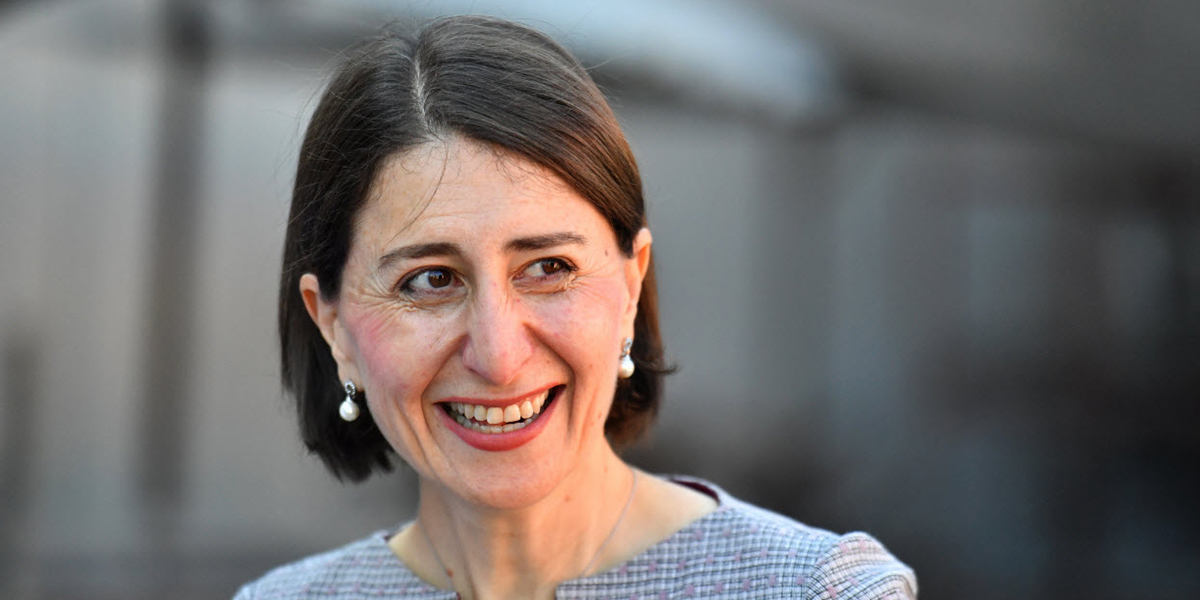
Berejiklian Conflict
Opinion + AnalysisBusiness + LeadershipPolitics + Human Rights
BY Simon Longstaff 14 OCT 2020
The next phase in the political life of NSW Premier, Gladys Berejiklian, depends on answers to three questions.
First, was her former relationship with Daryl Maguire not just ‘close’ but, in fact, an “intimate personal relationship”? Second, did the Premier make or participate in any decisions that could reasonably be expected to confer a private benefit on Mr Maguire? Finally, if the answer is ‘yes’ to each of these questions, then did Ms Berejiklian declare her interest in the Ministerial Register of Interests and seek the permission of Cabinet to continue to act?
Nothing else matters – not the Premier’s choice of friends, not her judgement … only the answer to those three questions.
The reason for this can be found in the NSW Ministerial Code of Conduct (the Ministerial Code) which has the force of Law. As might be expected, the Ministerial Code imposes obligations that are in addition to and are more onerous than, those applying to Members of Parliament.
The Preamble to the Ministerial Code of Conduct says, amongst other things, that, “In particular, Ministers have a responsibility to avoid or otherwise manage appropriately conflicts of interest to ensure the maintenance of both the actuality and appearance of Ministerial integrity.” With that end in mind, the Code not only takes account of the personal interests of individual Ministers – but also those of members of their families. It is here that the precise nature of the Premier’s relationship with Mr Maguire risks becoming a matter of public, rather than personal, interest. This is because the Ministerial Code of Conduct defines a “family member”, in relation to a Minister, as including, “any other person with whom the Minister is in an intimate personal relationship”.
‘Intimate’ is not a word used in the ICAC hearing to describe the Premier’s relationship with Mr Maguire.
Instead, it was agreed that theirs had been a “close personal relationship” – the precise nature of which was never explained. However, the evidence suggested that the words ‘close’ and ‘intimate’ may have been synonymous. If so, then Mr Maguire will have fallen within the definition of ‘family member’ during the period of his relationship with the Premier.
However, this (in itself) is neither here nor there. The nature of Ms Berejiklian’s relationship with Mr Maguire was (and should have remained) an entirely private matter up until the point where the Premier became involved in any Ministerial decision that “could reasonably be expected to confer a private benefit” on Mr Maguire. Only then did the public interest become engaged.
So, did any such decisions come before the Premier (acting alone or in Cabinet) during the period of her relationship with Mr Maguire? And if so, did she declare her interest as she is required to do under the Ministerial Code? The matter would then have been in the hands of her Cabinet colleagues as the final provision of the Code states that, “a ruling in respect of the Premier may be given if approved by the Cabinet”.
The Premier obviously knew something of Mr Maguire’s hopes and plans – even if she thought them to be fanciful. She knew of his financial exposure and the material impact that NSW Government decisions might have on his personal wealth. We also know that, for a time, Mr Maguire was at the centre of the Premier’s private affections. The issue is not that the Premier would have acted against the public interest for the benefit of Mr Maguire. I sincerely doubt that she would ever do so. It is most importantly a question of what was done to ensure the maintenance of both the actuality and appearance of Ministerial integrity.
The Premier had a formal obligation to declare her relationship with Mr. Maguire if, a) it was intimate, b) she was involved in deciding any matter that could reasonably be expected to confer a private benefit on him. It was then up to her Cabinet colleagues to rule on how she should proceed from there. Beyond settling these questions, the public has no legitimate interest in the private life of Gladys Berejiklian – except, perhaps, to extend to her our sympathy if she has been drawn inadvertently into a web of grief spun by a former friend.
Ethics in your inbox.
Get the latest inspiration, intelligence, events & more.
By signing up you agree to our privacy policy
You might be interested in…
Opinion + Analysis
Business + Leadership, Politics + Human Rights
Should corporate Australia have a voice?
Explainer
Business + Leadership, Politics + Human Rights, Relationships
Ethics Explainer: Power
Opinion + Analysis
Business + Leadership
Beyond the shadows: ethics and resilience in the post-pandemic environment
Opinion + Analysis
Society + Culture, Climate + Environment, Politics + Human Rights
Why you should change your habits for animals this year
BY Simon Longstaff
Simon Longstaff began his working life on Groote Eylandt in the Northern Territory of Australia. He is proud of his kinship ties to the Anindilyakwa people. After a period studying law in Sydney and teaching in Tasmania, he pursued postgraduate studies as a Member of Magdalene College, Cambridge. In 1991, Simon commenced his work as the first Executive Director of The Ethics Centre. In 2013, he was made an officer of the Order of Australia (AO) for “distinguished service to the community through the promotion of ethical standards in governance and business, to improving corporate responsibility, and to philosophy.” Simon is an Adjunct Professor of the Australian Graduate School of Management at UNSW, a Fellow of CPA Australia, the Royal Society of NSW and the Australian Risk Policy Institute.
Recovery should be about removing vulnerability, not improving GDP

Recovery should be about removing vulnerability, not improving GDP
Opinion + AnalysisBusiness + Leadership
BY The Ethics Alliance Cris Parker 29 SEP 2020
Vulnerability demands attention and, in the past, where profits were prioritised business was preoccupied and vulnerable customers harmed.
Because of Covid 19 we can expect to see more vulnerability with multiple drivers. The pandemic has reminded us that we can all be vulnerable if the right (or wrong) circumstances occur.
A year ago, your vulnerable customer probably didn’t look like my daughter and her friends: cashed-up twenty-somethings, single, easy going and living alone. Nor did a dual-income household with primary school-aged kids automatically raise any red flags.
However, we are now realising the various ways that changes in circumstances can quickly render us vulnerable in both financial and non-financial ways. The physical, emotional and financial impacts of the pandemic challenge business to find new ways to recognise and forecast when people are experiencing hardship. Not least because many people who find themselves in hardship may be less likely to seek support.
We live in a society where wealth is a sign of success – particularly for those who have grown accustomed to a certain level of financial wellbeing. In this context, to be labelled vulnerable is a suggestion that you have failed in some way. There’s an element of shame or even a stigma attached to the label.
Vulnerability is so often positioned through an economic lens, the term synonymous with poverty, diminished capacity or poor decision-making. This means singles struggling with the mental health impacts of isolation and parents collapsing under the pressure of home-schooling may baulk at the idea of being labelled ‘vulnerable’.
Our new reality also requires fresh approaches to handling people who have experienced a sudden change in fortune. People who managed just fine in the “gig economy” are now in a precarious position in “insecure employment”. Those who took on huge debts to buy homes in our major cities are also under extreme financial pressure as the economy continues to slide.
I recently participated in a discussion with customer advocates from the financial services sector. One advocate revealed that estimated calculations were that we can expect around 30,000 homes to be lost as a result of the pandemic. A month ago (which seems an age in COVID-time), the Lowy Institute reported the number of unemployed would soon exceed 1.3 million. The jobless rate will climb to 10 per cent by the end of the year and still be above 8 per cent by the end of 2021, according to the Reserve Bank of Australia (RBA). In short, all evidence points toward an explosion in the amount of vulnerable people businesses are dealing with.
“Measured as Gross Domestic Product (GDP) per head, Australia’s average living standards are falling and will take several years to return to the pre-pandemic level,” says the institute’s John Edwards, a former member of the Board of the RBA, and Adjunct Professor with the John Curtin Institute of Public Policy at Curtin University.
Our economy’s health is measured by our GDP. It’s the magic acronym: – the more it goes up, the better off our society is, or so they say. However, given the anticipated explosion of vulnerable customers and people facing financial hardship, it might be worth revisiting the role GDP plays in our understanding of economic health.
If our GDP recovers, but we see minimal reduction in the amount of vulnerable people – financially vulnerable or otherwise – is this really a recovery at all?
Measuring a society’s health by GPD can be a useful rule of thumb, says business ethicist Dr Ned Dobos, Senior Lecturer in International and Political Studies at the UNSW Canberra. However, it would be “wrong-headed” to put too much faith in it, Dobos argues that we need different metrics than relative material wealth to measure how we are going.
Dobos points to the research conducted by Daniel Kahneman and Angus Deaton, showing that more money will only make people happier up to a certain point – around $US75,000. But while extra money may make them feel more successful, it will not make them feel happier beyond that threshold.
“We’re continuing to measure the welfare of our society in terms of GDP, even though GDP has no proven connection to our sense of wellbeing anymore,” he says.
“We have fetishised material wealth, even though it’s not connected to the things that ultimately matter.”
Dobos hopes that a silver lining from the pandemic will be that, as a community, we have more understanding of people who are unemployed and that we realise that poverty is not a character defect.
“Surely people, after a period of time, would have to appreciate that with a million people in this country unemployed, [unemployment] must be something that is not entirely within their control,” he says. “We can’t have that many degenerates.”
Susan Dodds, Professor of Philosophy at La Trobe University, agrees. She says she would like to see a recognition that attaining wealth requires a fair degree of luck, rather than it being something one “deserved”.
She would prefer the discussion of economics shift from GDP to “talking about what makes for a decent life.”
There are large numbers of people who are working as casual, low-paid, low-skilled, itinerant workers – moving between nursing homes. There’s a reason for that: they’re not doing it because: ‘gee whiz, I’d love the flexibility’,” says Dodds.
Dodds says the pandemic is an opportunity to have another look at what a reasonable expectation of profit is. “The idea that we can get, year-on-year, a two per cent reduction in our costs in order to get an inflationary increase in our profits, making me comfortable with the amount of dividend I get, is really exploitative.”
What gets measured gets done. If our recovery is determined exclusively in terms of GDP, it might mean creating more vulnerable people, as organisations are incentivised to pursue relentless growth.
There has been a global push for more purposeful capitalism; Blackrock CEO Larry Fink wrote a letter to 500 CEOs last year addressing this issue. Closer to home, this year New Zealand is the first western country to design its entire budget based on wellbeing priorities. “We’re embedding that notion of making decisions that aren’t just about growth for growth’s sake, but how are our people faring?” Ardern said.
The ACT has identified that economic conditions, important as they may be, are not the only factors that contribute to the quality of life of Canberrans. In releasing the Budget in March 2020, the ACT Chief Minister Andrew Barr stated, “We are more than an economy – we are an inclusive, vibrant and caring community where we aim for everyone to share in the benefits of a good life both now and in the future.” The ACT Wellbeing Framework will inform Government priorities, policies, investment decisions and Budget priorities.
In his recent Ted Evans lecture, economist Professor Ian Harper, an RBA board member, reminded economists to talk to the public, to keep in touch with what the community thinks are important priorities.
“Apart from anything else, you learn so much about what really matters for people. Whether it’s the level of minimum wages, a level of interest rates, how banks are supervised, where you can open a pharmacy, when you can open a supermarket or where you can get treated for infectious disease,” says Harpers.
“No one should be surprised that an economist should worry about the human dimension of his craft – social science, it may be, but economics started out as moral philosophy.”
“Our quest to raise community welfare cannot be divorced from its foundation in a moral calculus. More to the point, if it is divorced from its moral foundations, then economic policymaking is more likely to diminish than enhance economic welfare.”
Ethics in your inbox.
Get the latest inspiration, intelligence, events & more.
By signing up you agree to our privacy policy
You might be interested in…
Opinion + Analysis
Business + Leadership, Society + Culture
A win for The Ethics Centre
Opinion + Analysis
Business + Leadership
The value of principle over prescription
Opinion + Analysis
Business + Leadership
Why trust-building strategies should get the benefit of the doubt
Opinion + Analysis
Business + Leadership
An ethical dilemma for accountants
BY The Ethics Alliance
The Ethics Alliance is a community of organisations sharing insights and learning together, to find a better way of doing business. The Alliance is an initiative of The Ethics Centre.
BY Cris Parker
Cris Parker is the former Head of The Ethics Alliance and a Director of the Banking and Finance Oath at The Ethics Centre.
Space: the final ethical frontier

Space: the final ethical frontier
Opinion + AnalysisClimate + EnvironmentScience + Technology
BY Matthew Beard 24 SEP 2020
The German philosopher Immanuel Kant once famously said “Two things fill the mind with ever new and increasing admiration and awe, the oftener and the more steadily we reflect on them: the starry heavens above and the moral law within.”
It probably didn’t occur to Kant that there would come a day when the moral law and the starry heavens would find themselves in a staring contest with one another. In fairness though, it’s been almost 250 years since he wrote that quote. Today, those starry heavens play an increasingly important role in human affairs. And wherever there are people making decisions, ethical issues are sure to follow.
To get to know this final ethical frontier, I had a chat with Dr Nikki Coleman, Senior Chaplain Ethicist with the Australian Air Force. Nikki is a bona fide space ethicist to help us get up to (hyper) speed with all the new issues around ethics in space.
Is space an environment?
One of the largest contributions of the field of environmental ethics has been to encourage people to consider the environment as having value independent of its usefulness to humans. Before environmental ethics emerged as a field, many indigenous cultures and religions had already embedded these beliefs in the way they lived and related to land.
“The idea of space is that it’s a ‘global commons’,” says Coleman. “It belongs to all of us on the planet, but also to future generations. We can’t just dump space debris. We have to be careful about how we utilise resources. Like the resources on Earth, these resources are finite. They don’t go on forever,” she says.
This echoes one of the most common arguments about preservation and sustainability. We take care of the planet not just for ourselves, but for future generations. The challenge is helping people to understand that custodianship of space means thinking about the long tail on the decisions we make now. In fact, it might be even more difficult when it comes to space because, well, space is big, and it’s a long way away and we’ll likely never go there ourselves.
“What happens in space is the same as what happens on Earth, but it’s more remote,” Coleman tells me. And yet, despite this, what happens in space affects us profoundly. Just as we rely on trees, ecosystems and other aspects of the natural environment, we are reliant on parts of space as well. “Even though these objects feel further away from us, we still have an interdependency and a relationship with space,” explains Coleman.
What role should private companies play?
We’ve seen a lot of noise about space being made by private companies like SpaceX and Virgin – which is an enormous change from the time when travelling to space was something you could only do from a national space agency in a wealthy nation. But these companies have very different motivations for expanding into space.
“Space,” says Coleman “has become a very congested space.” “The cost of space operations has dramatically decreased, and we’re now seeing whole organisations devoted to their own space operations rather than as part of a government.”
This is where some issues can arise, “because what’s appropriate for a commercial operator in returning profits to stakeholders is not necessarily what’s appropriate for the whole of the planet.” Space is a ‘global commons’, it should be used to serve everyone’s interests – including future generations – not just the needs and wants of a single company or nation. It’s unclear to what extent commercial operators are taking the idea of a global commons seriously.
“We have someone like Elon Musk putting a car into space – which is the ultimate litter – or talking about putting 42,000 satellites into low-earth orbit, which obviously creates problems around congestion and space debris,” Coleman explains, referring to Elon Musk’s proposed ‘Starlink’, a network of satellites that could dramatically improve broadband speeds.
The interstellar garbage dump
Space debris is a big deal. We probably all remember in primary school learning about how different parts of a rocket break apart as they launch into space. Some of that burns up in the atmosphere, but lots of it remains in orbit. And it’s not just a few parts of rockets and a random Tesla. There is a lot of junk floating around in orbit around earth.
“Why that is problematic is it actually stays there for a really long period of time,” Coleman explains. “Some of it will decay in orbit and burn up in the atmosphere, but a lot of it could stay there for tens of thousands of years.”
But it’s not just that the debris sticks around. It’s that it can wreck a whole lot of important stuff whilst it orbits around the planet.
Coleman tells me that debris can interfere with our current satellites. ”The International Space Station is actually quite vulnerable. It only takes a small puncture to make it a life-threatening situation. And the issue is growing because we’re putting more and more satellites – including small satellites that don’t manoeuvre – into space.”
The worst-case scenario when it comes to space debris was depicted in the recent film Gravity, where the debris destroys satellites, generating even more space debris in a cascading process called Kessler Syndrome.
“The idea of having a whole area of space that is full of space debris will actually have massive impacts for the future,” Coleman warns. We use satellites for so many things: communication, food security, navigation… it’s not just about posting on Twitter and putting photos on Facebook.”
“The precursor for space debris is lots of things in space, so that’s why it’s problematic when someone talks about putting tens of thousands of satellites into orbit.”
The militarisation of space isn’t new
Coleman is quick to point out that space and the military have a long history. In fact, Sputnik was a Russian military satellite, which means “we have had a militarisation of space operations right from the get go.”
However, there are some changes in the way that militaries are thinking about space today. “Currently, military operations in space predominantly look at satellites and communication and dedicated military satellites for example, we’re with starting to see an increase in aggressive uses of military uses of space,” says Coleman.
The challenges here are myriad, but one significant one is that so much of what’s up in space is infrastructure that both civilians and the military need. Usually, the law and ethics of war don’t permit the targeting of infrastructure used by civilians when that would be disproportionately harmful to them.
“I would argue that a civilian satellite is not a legitimate target because it could have catastrophic effects for the civilians that rely on that satellite.”
“Space debris is climate change 2.0”
Ok, yes, we already talked about space debris but it’s so interesting we have to do it twice. See, space debris isn’t just garbage; it’s property.
“If you throw a bottle into the ocean, anyone can pick that up. That means that all the plastic in the middle of the ocean can actually be collected and recycled and made into something commercially viable,” Coleman explains. “But everything that goes into space is actually the property of the country that launched it.”
This means even if someone wanted to tidy up space, they couldn’t. Anyone can litter the global commons, but that doesn’t mean anyone can tidy it up. The rubbish belongs to someone.
This is where Coleman sees the analogy to climate change beginning. No one person or group can solve the problem. “We need to work together internationally to search to solve the problem of space debris,” she says. “I’m really excited that at the moment there is a large amount of discussion internationally about climate change, but there isn’t a lot being done around [space debris].”
The other, more frightening, climate change analogy is in terms of the threat posed by space debris. “It has the capacity to have a much faster impact on life on the planet,” says Coleman. “It could push us back to the 1950s.”
If there’s life on Mars, can we live there?
It seems interesting that at a time when many societies are coming to grips with the harms and problems colonisation has had around the world, there are people seriously contemplating the colonisation of Mars. For Coleman, this reveals one of the central ethical questions – not just for space, but in any walk of life. How far do our moral obligations extend?
“Do we have a duty not just to ourselves but to others as well, and do we have a responsibility to future generations of humans or potentially future generations of whatever is growing on Mars?”
We accept that we have obligations to future humans, but it seems quite different to say that we have obligations to a microbial life form on Mars. However, Coleman poses a further question: do we also have duties to whatever that microbial organism might evolve to be in millions of years?
“If we find life, do we owe it the opportunity to grow and develop into something that might eventually turn into intelligent life?”
I, for one, welcome our new microbial brothers and sisters.
Ethics in your inbox.
Get the latest inspiration, intelligence, events & more.
By signing up you agree to our privacy policy
You might be interested in…
Opinion + Analysis
Climate + Environment, Health + Wellbeing, Relationships
The dilemma of ethical consumption: how much are your ethics worth to you?
Opinion + Analysis
Health + Wellbeing, Science + Technology
Twitter made me do it!
Big thinker
Climate + Environment
Big Thinker: Bill Mollison
Opinion + Analysis
Climate + Environment, Politics + Human Rights
Who is to blame? Moral responsibility and the case for reparations
BY Matthew Beard
Matt is a moral philosopher with a background in applied and military ethics. In 2016, Matt won the Australasian Association of Philosophy prize for media engagement. Formerly a fellow at The Ethics Centre, Matt is currently host on ABC’s Short & Curly podcast and the Vincent Fairfax Fellowship Program Director.
Ethics Explainer: Testimonial Injustice

Ethics Explainer: Testimonial Injustice
Opinion + AnalysisPolitics + Human Rights
BY The Ethics Centre Eleanor Gordon Smith 22 SEP 2020
Telling people things – or giving ‘testimony’ – is one of our quickest, oldest, and most natural ways of adding to human stores of knowledge.
Philosophers have spent thousands of years wondering when, and why, certain beliefs count as knowledge – and when certain beliefs count as justified. Many agree that when we are told something by someone reliable, trustworthy, and in possession of the facts, their testimony can be enough to justify a belief in what they say.
I can tell you that it will rain later, you can tell me which way the train station is, we can both go to a lecture by an expert and walk away knowing more.
But we can’t accept all the information we hear from other people. Not all testimony can ground knowledge – some of it is lies, errors or opinion. That’s why credibility is important to the process of learning by being told.
The enlightenment philosopher David Hume argued that we shouldn’t set our standing levels of credibility too high: he thought “testimonial beliefs” were only justified when we had back-up justification from other sources like our own eyes, readings, and observations.
Immanuel Kant, by contrast, thought that we had a “presumptive duty” to believe what our fellow humans told us, since believing them was a mark of respect.
Regardless of the debate about how much credibility we should give people, there’s no denying that how much credibility we do give plays a big role in what we can learn from each other, and whether we learn anything at all.
Sometimes we allocate credibility in ways that are unfair, unreasonable or outright harmful. Beginning in the 20th Century, Black and female philosophers started pointing out that women, people of colour, people who spoke with an accent, and people who bore visible markers of poverty were disbelieved at far higher rates than the general population.
Because of existing prejudices against these people, some ethicists posit, they are being systematically disbelieved when they speak about things they, in fact, are reliable experts about. This is what philosophers term “a credibility deficit”. People could experience a credibility deficit when they speak about elements of their own experience, like what it was like to be a woman in domestic servitude.
It could also include elements of the world around them – such as the denial of black people’s reports of violence by white men.
Credibility deficits are not just a matter of knowledge but a matter of justice: if we are not believed when we tell other people true things, we can be shut out of important social processes and ways of being recognized by other people. One of the most important ways that credibility deficits play out is in court, or in other reports to do with crimes and legal proceedings.
After abolition in the United States but before the civil rights movement, black peoples’ testimony was not recognised as a source of legal information in courts. That legacy has long undermined the way that black people’s testimony is viewed in courts, even today.
Philosopher Miranda Fricker uses a scene from To Kill A Mockingbird to highlight the way Tom’s race, when combined with his being in a white courtroom affects his Tom credibility. Though he is in fact telling the truth, and though there are no obvious reasons to disbelieve him, the white jurors in the American South are so trained by prejudice that they regard his race itself as a reason to disbelieve him. It is not the facts of the story itself that mean jurors do not believe it, but facts about who is telling it.
Clip: Tom Robinson’s cross-examination from To Kill A Mockingbird.
This was a common and tragic way that credibility deficits played out in the real world: there is a long history of white women being believed over black men even when they made false and damaging claims.
The tradition of “testimonial injustice” in philosophy argues that credibility misallocation is more than a mistake. It is an injustice because we have a moral duty to see other people as ‘full’ people and to treat them with respect, but discounting people’s word because of prejudice is a way of denying them that respect.
In some ways, to refuse to believe someone without defensible reasons is to refuse to recognise them as a person.
Philosophers like Miranda Fricker, Jose Medina, Dick Moran, and a long tradition of black feminist epistemology including Charles Mills and bell hooks have explored the ways that being a free and equal citizen requires being believed as one. There are wide-ranging debates among these thinkers over many areas inside testimonial injustice, including whether and why being believed is foundational to being seen as a person, what kinds of credibility we could ‘owe’ one another, and whether people besides the disbelieved party are wronged by a faulty allocation of credibility.
One important question is whether it could be wrong and if so to whom, to give out too much credibility instead of too little. If it’s unfair to afford someone too little credibility, what should we say of affording too much? Are they wrong? If so, why? And, who is wronged by giving someone more credibility than they deserve?
A case study that might demonstrate this question is the familiar setting of the classroom. A male teacher-in-training with six months experience might be regarded in the classroom as more authoritative than a female teacher with many years’ more experience. This need not mean that the students disbelieve the female teacher. They could simply believe the male teacher more readily, with fewer questions, and with more of a sense that he is credible and has gravitas in the learning environment.
They could simply give him more credibility than he deserves. Who is wronged by this, if the female teacher is still believed when she speaks? Are the students wronging themselves? Are they accidentally wronging the male teacher, even though he benefits from the arrangement? These are important open questions that ethicists are still debating.
Another question is what kind of credibility we have to give to others in order to do right by them. Hume knew that we could not believe everything we hear. How much must we believe, in order to avoid this distinctive form of injustice?
Despite these unresolved matters, testimonial injustice is an important ethical phenomenon to be aware of as we move through the world trying to be responsible speakers and hearers. It’s important to living ethically that we keep prejudice and it affects out of our beliefs as well as out of our acts.
Ethics in your inbox.
Get the latest inspiration, intelligence, events & more.
By signing up you agree to our privacy policy
You might be interested in…
Opinion + Analysis
Politics + Human Rights, Relationships
Ask an ethicist: do teachers have the right to object to returning to school?
Opinion + Analysis
Politics + Human Rights, Relationships
The Dark Side of Honour
Opinion + Analysis
Politics + Human Rights, Business + Leadership
Political promises and the problem of ‘dirty hands’
Opinion + Analysis
Politics + Human Rights, Relationships
To deal with this crisis, we need to talk about ethics, not economics
BY The Ethics Centre
The Ethics Centre is a not-for-profit organisation developing innovative programs, services and experiences, designed to bring ethics to the centre of professional and personal life.
BY Eleanor Gordon Smith
Eleanor Gordon-Smith is a resident ethicist at The Ethics Centre and radio producer working at the intersection of ethical theory and the chaos of everyday life. Currently at Princeton University, her work has appeared in The Australian, This American Life, and in a weekly advice column for Guardian Australia. Her debut book “Stop Being Reasonable”, a collection of non-fiction stories about the ways we change our minds, was released in 2019.
Character and conflict: should Tony Abbott be advising the UK on trade? We asked some ethicists

Character and conflict: should Tony Abbott be advising the UK on trade? We asked some ethicists
Opinion + AnalysisBusiness + LeadershipPolitics + Human Rights
BY Matthew Beard 17 SEP 2020
Former Aussie PM Tony Abbott’s recent appointment to an unpaid role as a trade adviser to the Johnson government in the UK has sparked controversy in both countries.
UK government MPs have continually been asked what it means to have a man who is, by the judgement of many in both countries, “a misogynist and a homophobe”, as well as a climate change denier and – more recently – sceptical about coronavirus lockdown measures.
In Australia, politicians, journalists and citizens have all questioned the appropriateness of a former Prime Minister accepting a position that leaves him serving a foreign government. Whilst Abbott has obligations under the Foreign Influence Transparency Scheme that are designed to prevent conflicts of interest, there are many who believe Abbott is equipped with too much internal knowledge of Australia’s trade interests, internal party politics and regional issues in the Pacific – accrued as Prime Minister – for him to serve another government.
Given the range of questions that arise around both conflict and character, we made a list of some of the big ethical questions the Abbott situation brings up, and spoke to a few ethicists to help answer them.
1. Abbott is a private citizen now. Shouldn’t he be able to take any job he wants?
“Being Prime Minister isn’t like any other job,” says Hugh Breakey, a Senior Research Fellow at Griffith University’s Institute for Ethics, Governance and Law. “Abbott would have been privy to high level information and forward planning that he is obligated to hold secret.” If a potential employer of Abbott – whether in a paid role or not – would benefit from this situation, Breakey argues that it would give Abbott a conflict of interests.
But it’s not just a question of conflicts of interest. In situations like this, it is reasonable to consider whether this role was given as a “kind of payback for favourable treatment during his time in power,” Breakey says.
However, whilst Abbott’s appointment may generate potential conflicts of interest and are “legitimate lines of ethical inquiry”, Breakey believes they are not problems for Abbott’s appointment.
However, Simon Longstaff, executive director of The Ethics Centre, disagrees. “There just can be no guarantee that Britain’s interests will always coincide with Australia’s. Given this, the fact that one of our former Prime Ministers would ever serve a foreign power almost beggar’s belief,” he said.
2. If Abbott’s trade qualifications make him a good candidate, should we overlook his other beliefs and opinions?
“I believe that a representative of any country, in any honoured capacity like this one, should be a morally upstanding person. Tony Abbott is not that, given his history of misogyny, homophobia, and racism,” says Kate Manne, philosophy professor at Cornell University.
However, Hugh Breakey worries that an approach like this risks jeopardising our commitment to non-discrimination and supporting a diverse set of beliefs and ways of life. Sometimes, he says, ethics might require us to overlook the questionable beliefs of a potential political appointment.
“At least some of the views taken by Abbott on these matters have religious influences, and many similar (and, indeed, far more conservative) views are held by religious devotees across many of the world’s major faiths. Prohibiting from public offices and services all those who hold such views… would allow widespread religious discrimination.”
However, another complication arises when it comes to whose views and personality traits we tend to overlook. Cognitive biases, social norms and systemic beliefs like sexism and racism can mean we’re more likely to overlook controversial beliefs or difficult personalities when they belong to men, people who are straight or white.
Kate Manne suspects that “both women and non-binary people are far less likely to be viewed as truly qualified or competent, unless they’re also perceived as extraordinarily caring, kind, and what psychologists call ‘communal’.” She adds that the tendency to separate the professional and personal/political aspects of someone’s identity is “far less available to women and gender minorities.”
3. Should we label Abbott a misogynist or homophobe based only on his public comments and policies?
“The truth is, few people would know Tony Abbott well enough to say with any confidence what he truly feels or believes, and those who do know him paint a very different picture to the one sketched by his critics,” says Simon Longstaff. “A person can be opposed to same-sex marriage and yet not be a homophobe,” he adds.
However, for Kate Manne, the central question of misogyny or homophobia isn’t whether the person feels a certain way toward women or queer people, it’s what effect they have on those communities.
“Misogyny to me is not a personal failure or an individual belief system: it’s a system that polices and enforces a patriarchal order,” she says. “I define a misogynist in turn as someone who’s an ‘overachiever,’ or particularly active, in this system.”
Manne says, “misogyny on this view is less about what men like Abbott may or may not feel toward women, and more about what women face as a result of their toxic, obnoxious, and contemptuous behaviour.”
For Manne, this means Abbott can be reasonably called misogynist and homophobic on this basis. His status as a former PM and his very public comments have done considerable work to uphold a system that oppresses women and LGBTIQ+ people. She cites examples such as calling abortion the ‘easy way out’, standing next to a ‘ditch the witch’ sign or talking about feeling threatened by gay people as evidence of Abbott’s contributions.
4. How should we balance the need to reject some beliefs because they’re not morally acceptable or legitimate with our commitment to pluralism?
“Democracies gain critically in legitimacy by being able to conduct inclusive deliberations where diverse views can be raised and considered,” says Hugh Breakey.
“Naturally, no-one can or should expect immunity from social consequences for what they say in public discussion, Breakey adds. “The more that institutional sanctions are applied on the basis of positions taken in [controversial] debates the narrower the spectrum of positions that are likely to be defended, and the more that different views will fail to be represented.”
Kate Manne suggests a simple principle to test which voices we should accept as part of our political life: “It’s good to have a variety of voices, but those voices need not to silence or speak over the voices of other people,” she says.
“Abbott’s voice does not meet that simple test. “
Unlike Manne, Breakey doesn’t suggest Abbott’s views sit outside the realm of acceptable political opinions, he agrees with Manne’s principle. “If we want democracy to be more than the tyranny of the majority, or (worse still) rule by elites, then we need more civic tolerance afforded to those who think and speak in disagreeable ways.”
Ethics in your inbox.
Get the latest inspiration, intelligence, events & more.
By signing up you agree to our privacy policy
You might be interested in…
Explainer
Politics + Human Rights
Ethics Explainer: Deontology
Opinion + Analysis
Climate + Environment, Politics + Human Rights, Relationships
A burning question about the bushfires
Opinion + Analysis
Politics + Human Rights, Relationships
Whose home, and who’s home?
Opinion + Analysis
Business + Leadership
The Ethics Alliance: Why now?
BY Matthew Beard
Matt is a moral philosopher with a background in applied and military ethics. In 2016, Matt won the Australasian Association of Philosophy prize for media engagement. Formerly a fellow at The Ethics Centre, Matt is currently host on ABC’s Short & Curly podcast and the Vincent Fairfax Fellowship Program Director.
The truths COVID revealed about consumerism

The truths COVID revealed about consumerism
Opinion + AnalysisHealth + WellbeingRelationships
BY The Ethics Centre 16 SEP 2020
What underlying driver created the great toilet paper gate panic of 2020?
At the onset of the pandemic, The Ethics Centre Fellow, Dr Matt Beard, University of Queensland philosopher and health researcher Bryan Mukandi, University of Queensland, and Australian philosopher and Princeton PhD candidate Eleanor Gordon-Smith joined in conversation. Together they discussed, dissected and explored a range of ethical issues rising during the early stages of the pandemic. In this extract, they discuss what COVID panic buying reflects about who we are, and what we value..
Matt Beard, TEC Fellow:
The kind of panic buying responsive that we saw from ordinary people at the beginning of this, what did that tell us about ourselves? For me that was a moment to really reckon and say what does it tell us that in the first sniff of a crisis, the first thing that we did was take care of us and ours. What does that say to us about the way in which we’ve set up this society?
Eleanor Gordon Smith, Philosopher:
The United States, the land that brought us Black Friday sales, did not hold back when it came to panic buying. What did it reveal about us? Less I think then it revealed about our circumstance.
Here’s what I think it revealed about us. We were afraid, and we didn’t feel secure, and we didn’t trust either us or the government around us to provide for us in the moment of crises where we would most need both those things.
More than anything particularly deep about our innate nature, which I know people argue about a lot, does this reveal that we’re fundamentally selfish? Well yes, but then people also drove themselves to food banks, and it revealed other things about kindness and solidarity, and all the nice things as well.
I think more than that it revealed something that we kind of already know, which is that the right configuration of circumstances can push ordinary people to behave in profoundly selfish and possibly evil ways.
We know that a lot of exercises of bad behaviour are perfectly ordinary, and what happens when people are frightened and insecure. More than what I think it told us about us, I think it told us something really disquieting about the faith that we had in our systems, which was that unless we did this unless we went out and kind of did this end of days, treading on each other’s necks for a can of beans we wouldn’t have enough.
I’ve been saying this for weeks, I don’t even like beans, I don’t know why I bought so many beans, everyone just transformed into people who really liked beans all of a sudden. But it told us that we were willing to do that.
In fact, we thought it is necessary that we do that because we were so unsure of the fact that other people, and or the government, and or the system would be able to provide for us if we didn’t do this kind of absurd others sacrificing thing. I think we were entirely wrong.
Byran Mukandi, Philosopher:
Here I disagree with Eleanor. Irene Watson, a legal scholar, in her book, “Raw Law”, she uses a Nunga word, Muldarbi for colonialism. There’s an image she paints of colonialism as this voracious monster, this voracious animal that just devours and consumes. And I just find that so incredibly apt.
I think it’s telling that for some groups in Australia, the relationship between ‘mainstream society’, and some communities is one that’s best classed as this voracious, consuming animal. This devouring thing.
As a sub-Saharan African, the quality of life I enjoy today as an Australian citizen, is inextricably linked to the poverty and deprivation, and the suffering that a lot continent sub-Saharan Africans, and a whole bunch of people around the world experience. Those two things are intimately intertwined.
There’s a lot of posturing in terms of our response to climate crisis around why China needs to do something first, but the fact is the Chinese industrial work, manufacturing work, goes into providing that which we, in the Western world, consume. There’s a sense in which we are ferocious, we devour.
The rush to buy toilet paper as though when the zombie apocalypse comes, the most needful thing is toilet paper… I mean, this isn’t a gastroenteric virus, it’s not like everybody’s going to be on the toilet, but little things, baking powder, toilet paper, tins of tomatoes and tomato paste, people were hoarding and panic buying non-essential goods.
I don’t think it was because the idea was this non-essential good is going to run out and I’m not going to make brownies or cupcakes, or whatever, and my life is going to come to an end.
I think we have a voracious appetite, I think we have a voracious consuming, devouring appetite. I think we have a particular relationship to the environment and to others, and I think this pandemic has just shone a light on who we are, as opposed to who we like to pretend we are and the image of ourselves we like to project.
This is an extract from a live-streamed event. Watch the full conversation from FODI Digital event, Ethics of the Pandemic, below. Don’t miss our next live-stream events at www.festivalofdangerousideas.com.
Ethics in your inbox.
Get the latest inspiration, intelligence, events & more.
By signing up you agree to our privacy policy
You might be interested in…
Opinion + Analysis
Climate + Environment, Health + Wellbeing
Donation? More like dump nation
Explainer
Relationships
Ethics Explainer: Respect
Opinion + Analysis
Relationships
What we owe to our pets
Opinion + Analysis
Relationships
